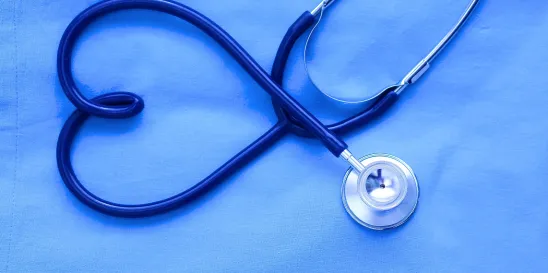THIS WEEK’S DOSE
- Upcoming FY 2024 Funding Deadlines: The House and Senate returned for the second session of the 118th Congress this week, as deadlines to advance fiscal year (FY) 2024 spending bills quickly approach. Four of the 12 annual appropriations bills are currently funded through January 19, and the remaining eight through February 2.
- House Hearing on Healthcare and Innovation: The House Education and the Workforce Subcommittee on Health, Employment, Labor, and Pensions discussed ways to improve access to healthcare with employer-driven innovation.
- HHS Healthcare Conscience Rights Final Rule: The US Department of Health and Human Services (HHS) finalized a rule that restores the longstanding process for handling conscience complaints and strengthens safeguards to protect against conscience and religious discrimination.
- DOL Independent Contractors Versus Employees Final Rule: The US Department of Labor (DOL) final rule changes how independent contractors and employees, including healthcare workers, are classified and determined under federal law.
CONGRESS
Congress Works to Meet Imminent Funding Deadlines. Speaker of the House Johnson (R-LA) and Senate Majority Leader Schumer (D-NY) announced an agreement on top-line spending levels to fund the government for the remainder of FY 2024. The deal allows House and Senate appropriators to begin hammering out the details of the 12 funding bills that must be passed to avoid a government shutdown. The current stopgap continuing resolution (CR) is set to expire on January 19 for four of the 12 annual funding bills, and on February 2 for the remaining eight.
Given these fast-approaching deadlines and the reality that it takes time to finalize the details of appropriations bills, congressional leaders are acknowledging that another short-term CR will be needed and are considering dates as far out as March. In the House, Speaker Johnson faces outrage from his most conservative members that he negotiated a deal in the first place, and also over the notion that another CR may be agreed to when he earlier committed to refusing consideration of any additional short-term CRs. This remains a very fluid situation.
House Education and the Workforce Subcommittee Holds Hearing on Healthcare and Employer-Driven Innovation. The hearing examined innovative methods and payment models (such as direct contracting, centers of excellence, onsite clinics and high-performance networks) that have the potential to lower costs while increasing quality of care for employees. Members and witnesses highlighted their concerns about US healthcare spending and the cost of employer-sponsored health insurance. Multiple witnesses and members suggested transparency as a solution to reduce healthcare spending, especially for employers. House Democrats commended the Affordable Care Act (ACA) and the Inflation Reduction Act (IRA) for reducing healthcare spending, and multiple members expressed support for H.R. 5378, the Lower Costs, More Transparency Act.
ADMINISTRATION
HHS Issues Final Rule on Healthcare Conscience Rights. The rule reverses policies from the Trump Administration that could have stripped federal funding from health facilities that require workers to provide any service they objected to, such as abortions, contraception, gender-affirming care and sterilization.
In the final rule, HHS states that the Office of Civil Rights (OCR) must make a prompt investigation of a complaint alleging failure to comply with the federal healthcare conscience protection statutes. The final rule also includes a new provision that did not appear in the proposed rule: “OCR may adopt a negative inference if, absent good cause, an entity that is subject to the Federal health care conscience protection statutes fails to respond to a request for information or to a data or document request within a reasonable timeframe.”
The final rule states that OCR considers the posting of a notice to be a best practice toward achieving compliance with and educating the public about the federal healthcare conscience protection statutes. OCR encourages all entities subject to the federal healthcare conscience protection statutes to post a model notice provided by HHS. OCR notes that it will consider posting a notice as a factor in any investigation or compliance review under this rule.
A fact sheet on the rule is available here.
DOL Issues Final Rule on Independent Contractors Versus Employees. DOL issued a final rule that modifies how independent contractors and employees, including healthcare workers, are classified and determined under federal law.
In all, the final rule raises the standard for classifying workers as independent contractors versus employees. In the DOL’s view, the rule also provides more consistent guidance to employers as they determine whether workers are economically dependent on the employer for work or are in business for themselves, as well as useful guidance to workers on whether they are correctly classified as employees or independent contractors. The DOL believes that the guidance provided in this final rule will help protect employees from misclassification.
The final rule takes effect on March 11. A DOL press release can be found here.
HHS Launches New Medicaid/CHIP Resource Hub & Highlights Record ACA Enrollment. The HHS announcement highlights the creation of the Medicaid and CHIP Renewal and Transition Resources for Partners. HHS requests help from a range of partners to reach every person who was enrolled in Medicaid at the beginning of 2023 to keep them covered, whether that is through Medicaid, CHIP, Medicare, the ACA Marketplace, employer-sponsored coverage, or another source of coverage for which they are eligible. As such, HHS along with other Departments has developed a number of key resources for partners to use.
- All hands-on-deck: Keeping People Covered As States Restart Routine Medicaid Renewals What Can YOU Do? – PDF
- All Hands-On-Deck: Keeping People Covered As States Restart Routine Medicaid Renewals – PDF
The webpage also features communications materials and toolkits to meet the diverse needs of the public including resources in multiple languages. The hub also includes materials to reach different populations including by state, for people in rural areas, various racial and ethnic communities, and for those receiving Supplemental Nutrition Assistance Program (SNAP) and/or Special Supplemental Nutrition Program for Women, Infants, and Children (WIC) benefits. Partners can also find information to educate their communities about potential scams and fraud related to Medicaid renewals, among other helpful resources.
In related coverage news, CMS announced that over 20 million people have selected an ACA Health Insurance Marketplace plan since the 2024 Marketplace Open Enrollment Period launched on November 1. The data represents activity through December 23 for the 32 states using HealthCare.gov and for the 18 states and the District of Columbia with State-based Marketplaces. Total plan selections include more than 3.7 million people (18% of total) who are new to the Marketplaces for 2024, and 16.6 million people (82% of total) who had active 2023 coverage and selected a plan for 2024 coverage or were automatically re-enrolled.
RFI Solicits Comments on Maternal Mental Health. Issued by the HHS Office on Women’s Health (OWH) and the Substance Abuse and Mental Health Services Administration (SAMHSA), the RFI seeks public comments on questions from the Task Force on Maternal Mental Health. The purpose of the task force—which is co-led by OWH and SAMHSA—is to identify, evaluate and make recommendations to coordinate and improve activities related to addressing maternal mental health conditions and co-occurring substance use disorders (SUD). There is also a focus on mental health equity and trauma-informed practices.
The RFI includes a set of questions concerning the context, policies, effectiveness, promising practices, and limitations and gaps related to prevention and treatment of maternal mental health conditions and SUD (inclusive of alcohol use/misuse) and its complications.
Responses are due by January 31. Additional information on the task force can be found here.
FDA Issues Digital Health Technologies in Diabetes Care RFI. Consistent with its 2022–2025 Strategic Priority focused on advancing health equity, the US Food and Drug Administration (FDA) Digital Center of Excellence, in partnership with the FDA’s Center for Devices and Radiological Health (CDRH), released an RFI about how digital health technologies, including artificial intelligence and machine learning, may help with early detection of risk factors for type 2 diabetes, prediabetes and type 2 undiagnosed diabetes.
CDRH asks questions in four categories: community engagement and consortia efforts, science/innovation, outcomes, and clinical integration and implementation. Comments are due January 31.
QUICK HITS
- MedPAC Hosts January Meeting. The Medicare Payment Advisory Commission hosted its two-day January meeting, during which it discussed payment adequacy for physician, hospital inpatient and outpatient, hospice, outpatient dialysis, hospice, skilled nursing facility, home health and inpatient rehabilitation facility services. There was also discussion of Medicare Part D, ambulatory surgical centers and the Medicare Advantage program.
- Site-Neutral Proponents Send Letter to Congress. A large number of physician, consumer and other interested stakeholder groups signed an open letter to Congress urging lawmakers to advance site-neutral payment and billing transparency reforms. The letter comes as Congress considers site-neutral payment policies potentially as part of a health policy package in the next government funding package. Such policies face pushback from hospital groups, which warn Congress that such changes would reduce access to healthcare services, particularly in rural and underserved areas.
- HHS Holds Webinar on IRA Benefits. The webinar provided an overview of new benefits available as of January 1 under the IRA and emphasized the significance of this relief for beneficiaries. Among the policy changes highlighted, the Medicare prescription drug Extra Help program will expand in 2024 for beneficiaries earning up to 150% of the federal poverty line. Administration officials encouraged individuals to reach out to Medicare if they think they may qualify for the Extra Help program.
- ARPA-H to Launch Preventive Care Investment Program. ARPA-H announced a new program called Healthcare Rewards to Achieve Improved Outcomes (HEROES). ARPA-H will solicit proposals from potential performers (called Health Accelerators), which can be groups or organizations such as health consortiums or community health centers, to address health challenges in parts of the country where the associated health outcome is worse than the national average. The announcement highlighted examples of health challenges, including alcohol-related harms, cardiovascular disease and risks, opioid overdoses, and severe complications during pregnancy and birth.
- CMS Calls for Health Equity Conference Proposals. The Centers for Medicare & Medicaid Services (CMS) issued a call for proposals for the second CMS Health Equity Conference. Proposals will be accepted through February 9. The actual conference will be held May 29–30. Proposals should focus on this year’s theme of “Sustaining Health Equity Through Action,” and should align with the priority areas of the CMS Framework for Health Equity 2022–2032 or its companion document, the CMS Framework for Advancing Health Care in Rural, Tribal and Geographically Isolated Communities.
- KFF Releases Report on Nonprofit Hospitals. A KFF report found that 73% of nonprofit hospitals and health systems analyzed had at least “strong” levels of cash to cover at least 150 days of expenses. The other 27% had adequate, vulnerable or highly vulnerable levels of cash on hand. The average days of cash on hand among nonprofit hospitals and health systems analyzed was similar in 2022 (218 days) to pre-pandemic levels (225 days in 2019).
- Bipartisan Policy Center Releases Report on Remote Patient Monitoring. The report looks broadly at ways to improve the use of remote monitoring services, ensure equitable access to these services across populations, and enhance data security and privacy standards.
NEXT WEEK’S DIAGNOSIS
The House and Senate are both in session next week, and all eyes will be on government funding as appropriators continue to work on FY 2024 spending bills and as the first CR deadline arrives at the end of the week. Without another short-term CR, a partial government shutdown may occur.







 />i
/>i

